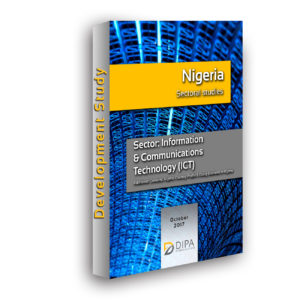 Nigeria is located at the extreme inner corner of the Gulf of Guinea on the west coast of Africa and has a tropical climate with variable rainy and dry seasons, depending on location.
Nigeria is located at the extreme inner corner of the Gulf of Guinea on the west coast of Africa and has a tropical climate with variable rainy and dry seasons, depending on location.
Nigeria, commonly known as the giant of Africa with more than 180 million people is the most populous country in Africa. With a democratic presidential system of government, it has an economy which is based on its rich natural resources, traditional agriculture and the trade sector. The country has a rich land of diverse cultural heritage, with more than 250 ethnic groups, including a wide array of religions and sophisticated visual arts.
It not only shows high potential in human resources but also is endowed with rich natural resources such as oil, gas and minerals. The country aims to develop other productive sectors, boosted by the size of its population and economy, it is a regional powerhouse.
As far as Information and Communications Technology (ICT) is concerned, Nigeria in 2011 created the Ministry of Communication Technology to ensure better coordination of ICT activities and development in Nigeria. The Nigerian telecommunications market is fully liberalized, highly competitive, and evolving with time. Since 1992, a wide range of regulatory initiatives have been undertaken to open up the market to private operators to provide products and services across the entire spectrum of ICT market segments. These initiatives, particularly in relation to market entry, have resulted in an impressive 53% compound annual growth rate (CAGR) in overall fixed and mobile subscriptions since 2001. Although the future and prospects for the Nigerian ICT sector appear rich, achieving the necessary scale and pace of growth is predicated on finding the correct mix of regulatory initiatives and interventions needed to encourage greater competition among market players and deeper penetration and usage of the entire range of ICT services.
Last but not least, the Business Environment in Nigeria can be characterized as unsupportive, with the World Bank ranking it (ease of doing business) 170 out of the 189 countries surveyed in its 2016 “Doing Business” report.
1. Country Profile
1.1 History of Nigeria
1.1.1. Early History
1.1.2. The Colonial period
1.1.3. Independence and Internal Conflict
1.1.4. Modern Nigeria
1.2. Geography
1.2.1. Area and Boundaries
1.2.2. Topography
1.2.3. Resources and Land Use
1.2.4. Environmental Concerns
1.3. People and Society
1.3.1. Population and National Identity
1.3.2. Demographics
1.3.3. Societal Characteristics
1.4. Government
1.4.1. Framework of Government
1.4.2. Legislative and Judicial Branch
1.4.3. Political Parties and Leaders
1.4.4. Foreign Relations
1.4.5. Political Pressure Groups
1.5. Main Infrastructure
1.5.1. Tele Communications
1.5.2. Transportation
1.5.3. Energy
2. Information and Communications Technology (ICT)
2.1. Policy and Regulatory Environment
2.1.1. ICT Policy Development in Nigeria
2.1.2. Policy Overview
2.1.3. Enabling Laws
2.2. Market Analysis
2.2.1. New Developments
2.3. Access
2.3.1. Household Access
2.3.2. Desktop Computers and Laptops
2.3.3. Mobile Communications
2.3.4. Internet/Broadband
2.3.5. Public Payphones
2.4. Penetration
2.4.1. Fixed Telephony
2.4.2. Mobile (GSM and CDMA)
2.4.3. Internet/Broadband
2.5. Largest ICT Companies
3. Doing Business
3.1. Starting a Business
3.2. Dealing with Construction Permits
3.3. Getting Electricity
3.4. Registering Property
3.5. Getting Credit
3.6. Protecting Minority Investors
3.7. Paying Taxes
3.8. Trading across Borders
3.9. Enforcing Contracts
3.10. Resolving Insolvency
